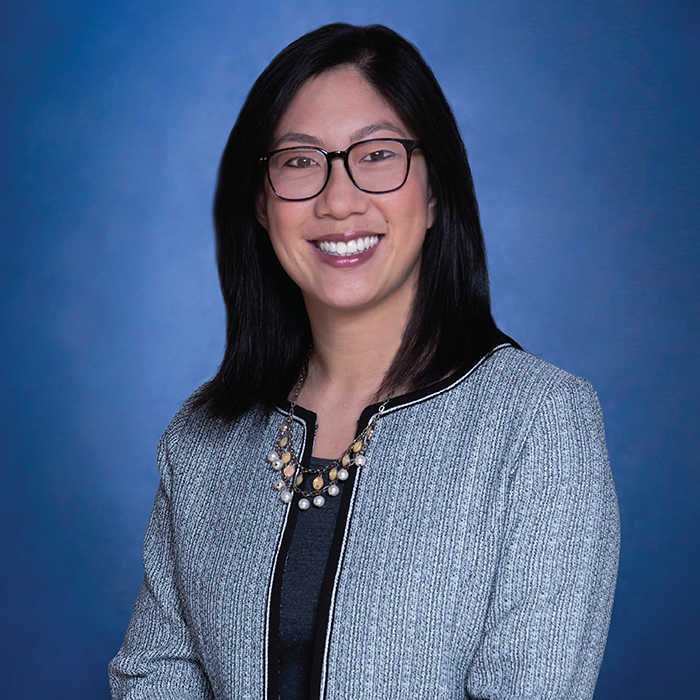
Headshot supplied by Sally Baxter
Sally Baxter grew up in San Diego, California, and went to college at Duke University, North Carolina (where she was also a pole vaulter on the track team). She completed her Master’s in Public Health at the London School of Hygiene and Tropical Medicine as a Marshall Scholar, then returned to the US to start medical school at the University of Pennsylvania.
After ophthalmology residency training at UC San Diego at the Shiley Eye Institute, Baxter embarked on a National Library of Medicine-funded postdoctoral Fellowship in Biomedical Informatics, also at UC San Diego, where she remains as faculty with joint appointments in ophthalmology and biomedical informatics.
“I practice comprehensive ophthalmology and do research in informatics, digital health, and AI,” she explains. Much of her role involves looking at how to leverage data and generate insights – not only for clinical care, but also with health equity in mind. “Ever since I did my public health degree, I’ve been very interested in understanding health disparities between different populations and how we might narrow those with large-scale data,” says Baxter. She is also looking at the relationships between health IT use and physician burnout, and how the use of large-language models like ChatGPT can help with responding to patient messages in the electronic health record (EHR) system. “I think we are one of the first sites to actually integrate large language models into point-of-care clinical practice.”
Alongside her data research work, Baxter is focused on education. “I really enjoy working with our awesome ophthalmology residents and teaching them cataract surgery, guiding them in research projects, and helping them along in their own career development,” she says. She has been inspired by several role models, including Michael Chiang, whom she worked with during her postdoctoral fellowship in informatics. In fact, Chiang was one of the people who inspired Baxter to go into informatics. “I didn’t realize it was something that ophthalmologists could do, to be frank.” she says. “A lot of his early work in retinopathy of prematurity, for example, really set the stage for using AI to improve care, to decrease variability, and improve our ability to standardize the way that we look at medical images.”
Baxter’s current department chair, Power List Hall of Famer Robert Weinreb, is also a major role model. “He has really been transformative in so many areas of glaucoma, including imaging, genetics, and health disparities,” she explains. “I really look to him as an inspiration in thinking about and addressing many facets of research, in seeing things through different lenses, having interdisciplinary collaborations, and generating new insights.”
Weinreb returns the compliment. “With remarkable initiative and creativity, Sally Baxter has rapidly established an outstanding track record of research accomplishment, leadership, and mentorship,” he says – adding that she is “poised to broadly impact both clinical practice in ophthalmology and vision research.” Her work on ophthalmic data standards, he says, will facilitate the translation of AI models from research settings to the clinic; moreover, the development and implementation of these standards will “enhance data sharing and harmonization across disparate data sources.”
Sally L. Baxter is an Assistant Professor of Ophthalmology and Biomedical Informatics at the University of California San Diego, USA.
